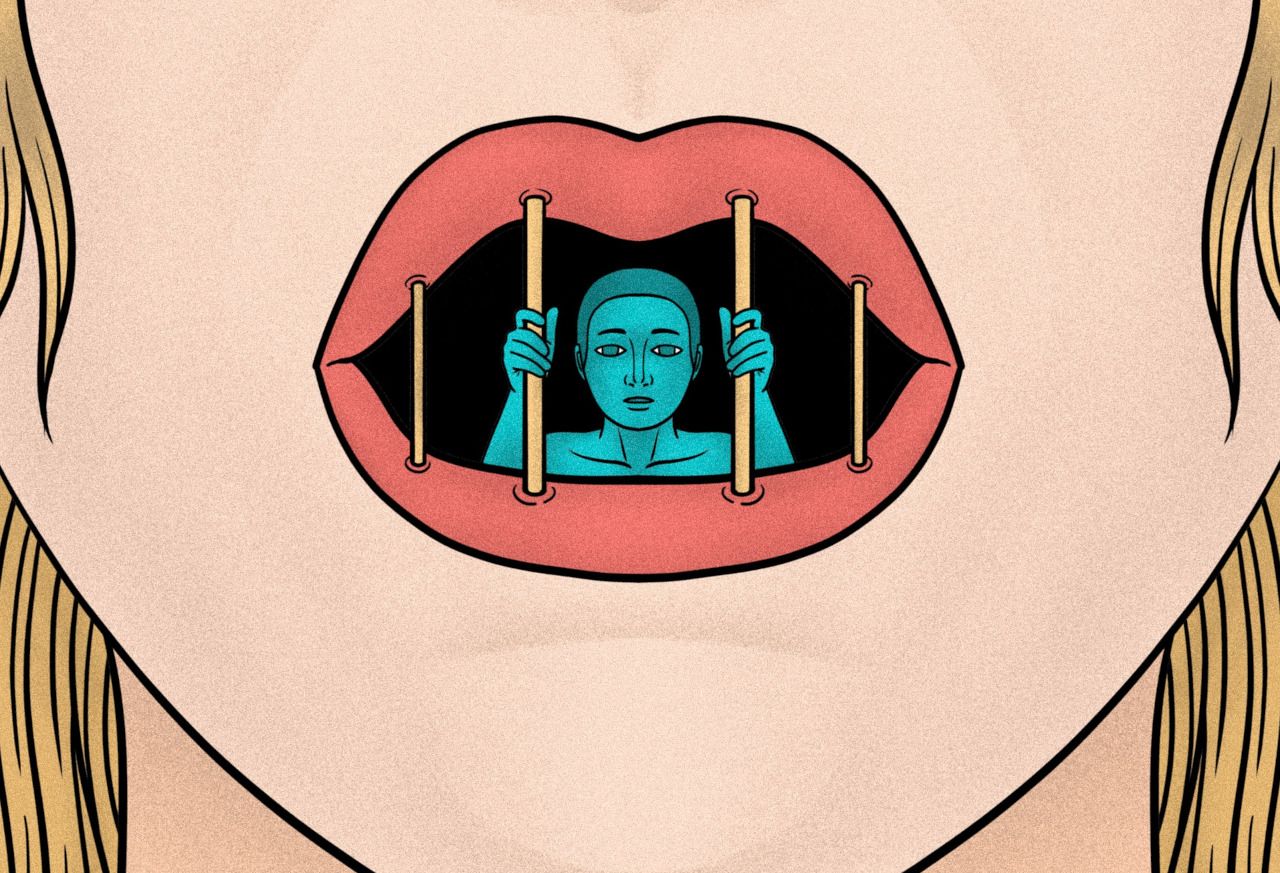Free Speech is Under Fire With the Rise in Global Surveillance
It's Free Speech Week but the lookout for freedom of speech on a global level couldn't be much worse.
This week is Free Speech Week, and while we should be happy to celebrate Articles 18 & 19 of the UN Universal Declaration Human Rights, this luxury is unavailable in too many parts of the world to get into a festive mood. With the rise of international surveillance operations even expats who have fled oppressive systems now have to contend with ongoing monitoring which not only affects themselves, but also friends and family who may still be living in their home country.
The combined oppressive power of global surveillance and local social credit scores poses a grave threat to the spread of free speech. The promise of liberating technology has failed and in its place a system of chilling effects has been instituted.
Free Speech: Universal Particularities
Chinese laws
Although declared a universal human right, the legality of free speech varies immensely between nations. In China, while Article 35 of the Constitution of the People’s Republic of China does declare that Chinese citizens “enjoy freedom of speech, of the press, of assembly, of association, of procession and of demonstration”, their overbearing internet censorship practices suggest otherwise. In 1997 the ‘Computer Information Network and Internet Security, Protection and Management Regulations’ were issued by the Ministry of Public Security and their implementation heavily limits free speech. Topics that incite division of the nation or harming national unification, make falsehoods or distort truth, destroy the order of society, or contain sexually suggestive material can be freely censored by the government.
Vague language and phrasing make legislated restrictions easy to extend to silence anyone whose actions are deemed a threat. It isn’t hard to see that these overly flexible laws greatly limit the freedom of speech promised by the Chinese constitution.
Plus, it’s no secret that the Chinese state monitors all their citizens 24/7 - no matter what the Chinese constitution says. This is also the reason why politicians in Western countries, like in the USA, are so worried about TikTok becoming too popular. Since it is a Chinese-owned app, no one knows what data is handed over to the authorities to be used for tracking and monitoring.
US laws
In the United States the freedom of speech is enshrined in the First Amendment to the US Constitution.
”Congress shall make no law respecting an establishment of religion, or prohibiting the free exercise thereof; or abridging the freedom of speech, or of the press; or the right of the people peaceably to assemble, and to petition the government for a redress of grievances.”
This amendment guarantees the freedom of expression within the United States of America even in cases where the speech may oppose societal norms or even government policies without fear of punishment or retaliation from the government. An example of protected free speech in the United States would be “Mickey Mouse should be elected president, all term limits should be removed, and all future elections should be suspended, leaving him as an eternal dictator.” Regardless of the nonsensical premise, the rejection of the democratic system of government maintained by the United States, uttering this sentence publicly or online will not land you a hefty prison term. In fact, in 1997 the US Supreme Court ruled that in the case of online obscenity, free speech still takes priority. “It is true that we have repeatedly recognized the governmental interest in protecting children from harmful materials. But that interest does not justify an unnecessarily broad suppression of speech addressed to adults.” The platform of online discourse should remain open and promote free expression.
This clear commitment to free speech allows free and public discussions which are free from the threat of retaliation should a person utter something which may go against the views, practices, or values of those in power - also on the internet.
More recently, however, this legally enshrined freedom hat come under threat by increasing surveillance tendencies around the world.
The Rise of Constant Monitoring and Social Credit Scores
Social Credit Scores are a relatively new phenomenon. The original concept for the Social Credit System, the official name of the system operating within the People’s Republic of China, started in the early 90’s in an attempt by the government to implement a number of financial regulatory systems similar to those found within the United States of America (think Equifax). What is interesting and often overlooked is that there is not a single centralized system assigning these scores, but there are infact multiple systems in place which were developed by Chinese software corporations like TenCent and AliBaba. A report from Wired.com writes that “In 2015 the Chinese government authorized eight tech companies, including Ant Financial, an affiliate of the corporate giant Alibaba, to experiment with developing credit reporting systems for individuals. In addition to financial data, Sesame Credit does take into consideration things like social media connections and purchasing habits…” This is precisely the combination between surveillance and real world consequences which are rightfully polemicized.
If your private communications and purchase history can be used to negatively impact your lifestyle, ability to cross international borders, or even request extended payment options for medical care, there is a not so unforceful nudge to act and behave within the status quo. By limiting the ability of a populus to speak freely, discuss alternative political arrangements, or purchase various commodities outside of this surveilled system an oppressive regime can quite effectively control a vast number of citizens without firing a single bullet. Who needs a repeat of Tiananmen Square when you can release an “app-for-everything” like WeChat which can cull dissent before it reaches the streets?


No-Logging Policies against Nudge Theory
If the data is stored somewhere, or can be recovered, there is the chance that it could at some point be applied to your Social Credit Score. At this point privacy protecting services like Tutanota can help. Your data is first sent to our servers with end-to-end encryption where it remains encrypted and even we cannot decrypt this data. If the data cannot be decrypted it cannot be used to monitor your behavior or strip you of any human rights like your right to privacy or free speech. Online services which maintain zero-logging policies are crucial in protecting their users from the possible future where such systems of surveillance and control are commonplace. If this kind of surveillance apparatus is on the other side of the world, we can rest assured that our online activities are safe from the watchful eyes of the dictators right? Unfortunately, this is not the case.
Censorship measures employed by the Chinese Communist Party are not only trained within the Chinese border, but are also trained, broadened, and updated based upon foreign internet activity. You may have zero connection to China, but your online behavior is extremely interesting to the Chinese Communist Party (CCP).
A report from Citizen Lab displays the hashing check used by the CCP to scan image contents against known hashes of images previously determined to be against the standards, policies, or values of the Party. This is known behavior applied to accounts created using a Chinese telephone number, but to what degree, if any, are these checks applied to accounts created beyond the Chinese border? Another report from Citizen Lab tests this case and does confirm that WeChat accounts created with non-Chinese phone numbers are also actively monitored for content which may be understood as posing a threat to the political powers that be. To avoid having our behavior nudged towards docile complicity it is absolutely paramount that our online communications be fully encrypted and be operated by transparent privacy-conscious companies or organizations.
AI and Machine Learning for Bullies
WeChat is not the only culprit in this predator form of behavior molding. Within the European Union the zombie Chat Control Bill continues to rear its ugly head. Once again a legislative push for mass surveillance under the guise of “protecting the children” threatens the legal possibility of using truly end-to-end encrypted private services. The proposed bill would mandate client-side device scanning for CSAM, but security experts and privacy advocates are concerned that this puts us on a slippery slope towards an unprecedented level of global surveillance.
If an algorithm is initially programmed to scan only for hashes of known CSAM images, what prevents it from being altered to scan devices for hashes of images mocking political figures? This is a clear threat to our right to privacy, freedom speech, and the existence of a free press.
We know that such an extensive tracking of everyone’s communication is technically possible because it is already common practice in the scanning policies used by WeChat. A well trained AI model could also pick up certain types of speech or topics of discussion which are deemed threats to national security or could pose danger to the youth. Once the box is opened freedom of speech, our right to privacy, even our entire democratic societies are at risk. There is no way to safely limit such a powerful form of surveillance.
There is no dignity in supporting unwarranted mass surveillance.
Fight for Free Speech
The function of a free and democratic society relies on the protection of privacy and anonymity.
This is why when the time comes to vote, ballots are walled cabins with a curtain to offer privacy for the voter to voice their opinions without fear of retaliation. The rise of a global surveillance apparatus is the polar opposite to the necessities of a functional democracy.
In the face of the Goliath of invasive Big Tech companies and government entities eager to see your most private thoughts, what can the average citizen do to push back? Beyond informing yourself about the logging and privacy policies of online services in your daily life, you can share this information with your friends and loved ones. Setting up group chats with secure platforms like Signal instead of WhatsApp or Facebook messenger are small steps which can increase your privacy and the privacy of those you care about.
Social media has become an integral part of our social lives, but every image uploaded poses a threat. Instead of posting to Instagram or Facebook, why not checkout the decentralized platform Mastodon and the Fediverse. Come for the community and stay for the privacy.
After informing yourself and promoting open source privacy respecting online services, if you are still looking for further ways to get involved in the battle for privacy you can follow some of the recommendations from Pirate Party EU Parliament Member Patrick Breyer. By raising awareness, calling your local representatives, and helping those who may need assistance make the switch to free and open software solutions you can do your part in keeping the internet a space for open discourse, unbridled expression, and bastion of free speech.
We are doing the same by standing up for our right to encryption - which Germany is planning to make law. We are joining forces with other privacy-advocates to defend encryption in the EU and in the Australian Online Safety Act.
Let’s fight for your right to privacy together!

